A survey of active researchers at the Russell Berrie Nanotechnology Institute at the Technion
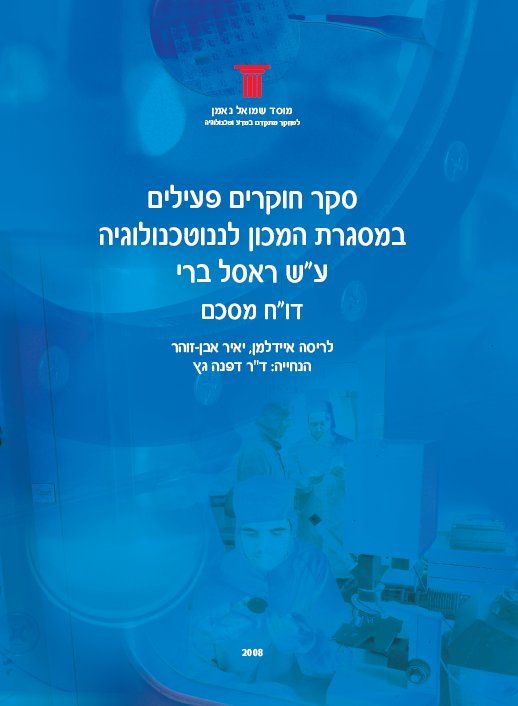
The goal of this survey, prepared by the SNI, was to evaluate the outputs and the outcomes of the Russell Berrie Nanotechnology Institute (RBNI) at the Technion. RBNI was examined over time with the aim of evaluating the results and impact of the research activities within its framework. Several methods were used in the evaluation […]
Proceedings of the International Conference: “Privatization in Higher Education” January 7-8, 2008
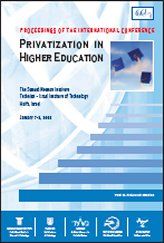
Contributions by: Philippe Aghion, Shoshana Arad, Zvi Arad, Elise S. Brezis, Morton M. Denn, Ali Doğramaci, Nehemia Friedland, Sarah Guri-Rosenblit, Grant Harman, Ranan Hartman, Rhanan Har-Zahav, Yaacov Iram, Uri Kirsch, Daniel C. Levy, Nadav Liron, Hagit Messer-Yaron, Gabriel Motzkin, Guy Neave, Thorsten Nybom, Zvi Piran, Sheldon Rothblatt, Eliezer Shalev, Steven Stav and Galit Eizman, Zehev […]
Energy Forum 8: Demand Side Management
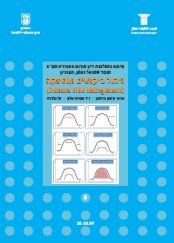
The eighth thematic meeting of the Energy Forum was devoted to the subject of Demand Side Management (DSM). The meeting was held at the Samuel Neaman Institute at the Technion on December, 2007. Experts on the subject, from industry, academia, governmental departments and the public sector participated. The Forum participants were selected with great care […]
Terror and the Costs of Crime
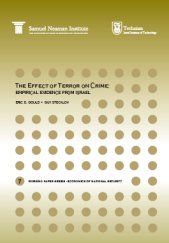
This paper argues that terrorism, beyond its immediate impact on innocent victims, also raises the costs of crime, and therefore, imposes a negative externality on potential criminals. Terrorism raises the costs of crime through two channels: (i) by increasing the presence and activity of the police force, and (ii) causing more people to stay at […]
Between technology development and public transparency: creating tools for public discussion on business ventures and technological alternatives for treating solid waste
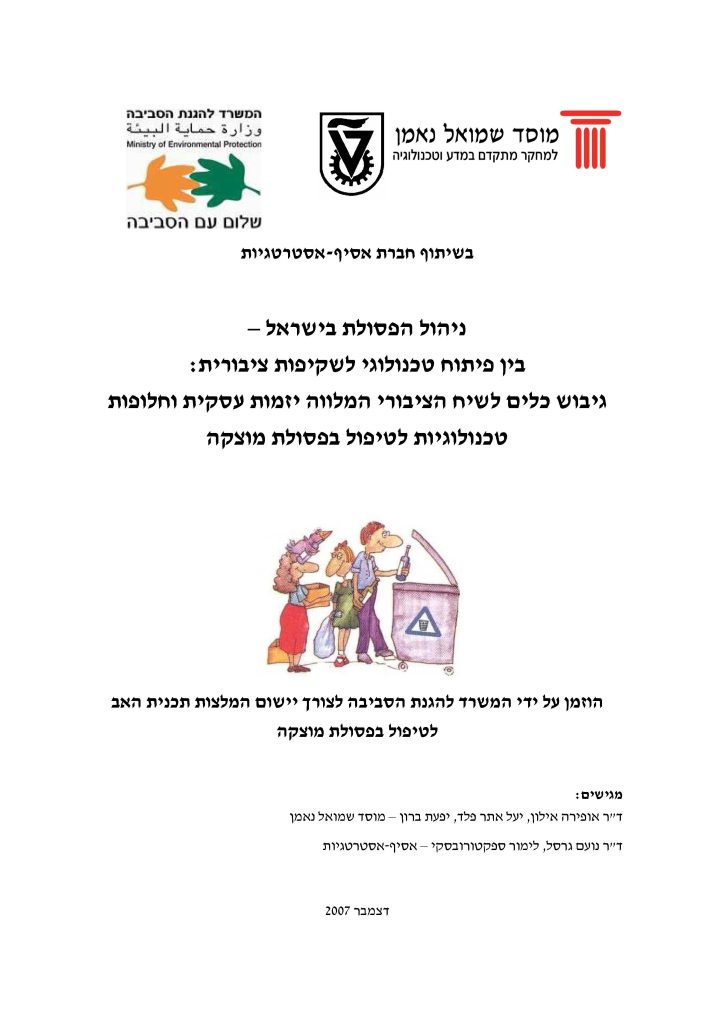
In order to promote and implement a sustainable waste management in Israel there is a need to develop tools for common knowledge and language for all stakeholders. Therefore, this project includes: Coordinating an operational team comprised of professionals and interested parties from the various related sectors. Evaluation of the various technological options according to cost/benefit […]
Privatization in Higher Education
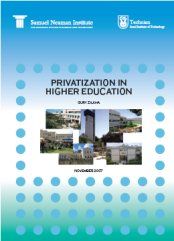
The private higher education sector has emerged gradually in recent years. This evolution occurred alongside the rapid growth in the demand for academic studies and degrees. Public support for higher education has severely declined in the last two decades due to mass expansion and soaring expense resulting in rapid growth in private higher education in […]
Human Resources for Science and Technology in Israel
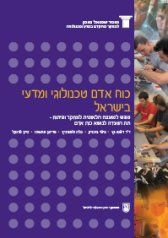
A prosperous economy and high quality of life require technological innovation. This is especially relevant in the case of Israel which lacks natural resources. The foundation for creating a scientific and technological knowledge basis lies in the development of a human capital. The European Union estimates that by the year 2010 it will need some […]
Science , Technology and Innovation Indicators in Israel: An International Comparison (second edition)
Lacking natural resources, size and proximity to markets, the state of Israel must rely on scientific and technological know-how for its survival and prosperity. Israel’s economic achievements, especially in high-tech sectors, were enabled through a 40-years long various directed government policy measures aimed at fostering scientific and technological progress, and nurturing highly skilled workforce and […]
Energy Forum 7: Biofuels for energy
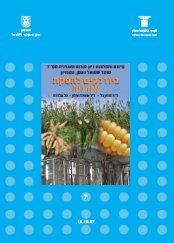
The seventh thematic meeting of the Energy Forum was devoted to the subject of Biofuels R&D in Israel. The meeting was held at the Samuel Neaman Institute at the Technion on October, 2007. Experts on the subject, from industry, academia, governmental departments and the public sector participated. The Forum participants were selected with great care […]
System Analysis of Technology Transfer Policies and Models in Higher Education

The current chapter presents a critical evaluation of the modes of knowledge and technology transfer from academia, based on the evaluation of data which spans over the last three decades and a case study of technology transfer in the fields of artificial intelligence, data science, and smart robotics. A need emerges for reevaluating and revisiting […]
